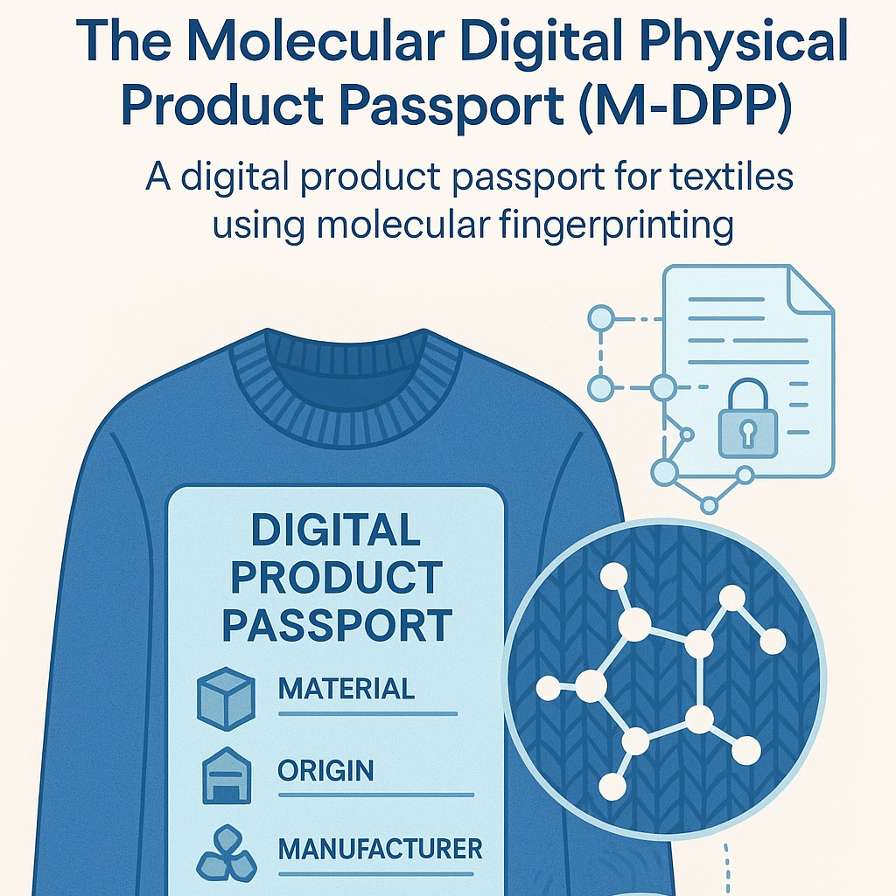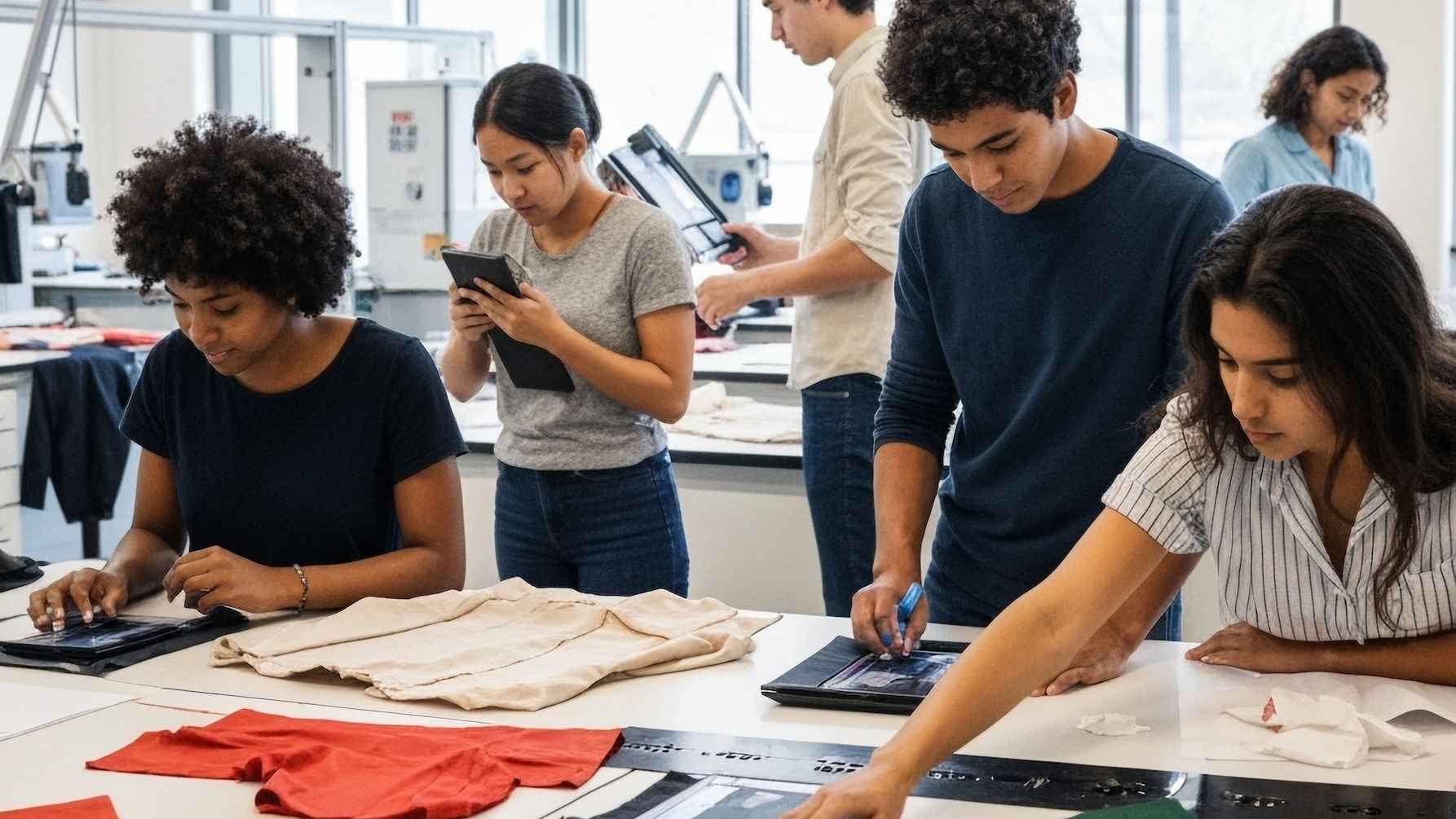Digital Passports for Traceable Fashion

What’s really in your clothes? Where do they come from? And how can you tell if they were produced sustainably? These are the main questions of the project Molecular Digital Physical Product Passport (M-DPP), an initiative by the Fashion Research & Technology and Responcible IT research groups at the Amsterdam University of Applied Sciences.
Digitalization as a Key to Circularity
The Fashion Research & Technology (FR&T) group leads the M-DPP project. At the intersection of fashion, technology, and circularity, FR&T develops new ways to make Digital Product Passports (DPPs) practical and applicable for the Dutch textile sector.
FR&T sees digitalization as the foundation for the circular transformation. Within M-DPP, the group explores how molecular identification and digital infrastructure, such as open-source APIs and Web3 technology, can ensure reliable, transparent, and lasting traceability of textile products. This makes it possible to verify, throughout a product’s entire lifecycle, where materials come from, how they were processed, and how they can be reused or recycled.
Prof. Dr. ir. Troy Nachtigall:
"Soon you’ll know exactly what materials your garment is made of, and who contributed to its creation, like the credits of a movie, but for your shirt."
Co-design and Collaboration with Industry
A key principle of FR&T’s approach is participatory design. In Living Labs, the research group works with fashion brands, designers, policymakers, and technology partners to co-develop, test, and refine the DPP system. This co-creative method ensures that the system is not only technically robust but also relevant and usable for Dutch SMEs.
Research, Policy, and Implementation
FR&T translates European frameworks, such as the Ecodesign for Sustainable Products Regulation’s (ESPR) Digital Product Passport (DPP), into concrete, applicable tools for the textile sector. The M-DPP group investigates how digital innovation can foster transparency, trust, and circular value creation.
A Bridge between Design, Technology, and Science
The research group plays a central role in connecting partners across research, industry, and policy. Together with HAN Biobased Innovations, HvA Responsible IT, Candour.Digital, byBorre, New Optimist, Dutch Circular Textile Valley (DCTV), and New Order of Fashion (NOoF), FR&T is developing an open, scalable, and future-proof DPP system.
Through this integrated approach, Fashion Research & Technology acts as a bridge between science, design, and industry, contributing to a digital and circular textile system ready for the future.

M-DPP – Collaboration
The M-DPP research project is part of a group of seven funded projects within the Digital Product Passports programme, which in total invests €2.7 million in practice-based research on circular chains in textiles, electronics, construction, and batteries.
Within this two-year project, the FR&T research group collaborates with the Responsible IT research group at AUAS, HAN University of Applied Sciences, and industry partners in fashion and textiles. Students from AUAS will also contribute to the project—for example, by supporting data collection.
DPP4CD
The FR&T research group is also involved in another project within the same programme: DPP4CD – Digital Product Passport(s) for Circular Denim: From Pilot to Practice. Led by Saxion University of Applied Sciences, this project focuses on implementing scalable digital product passports in the circular denim industry, and demonstrates how they can be used in supply chains.
"In DPP4CD, we’re developing an online system that keeps track of exactly how jeans are made. This means that during repair and recycling, we know exactly what we’re dealing with," says Troy Nachtigall.
Together, both projects make an important contribution to the circular ambitions of the fashion industry—and to a more sustainable Europe.